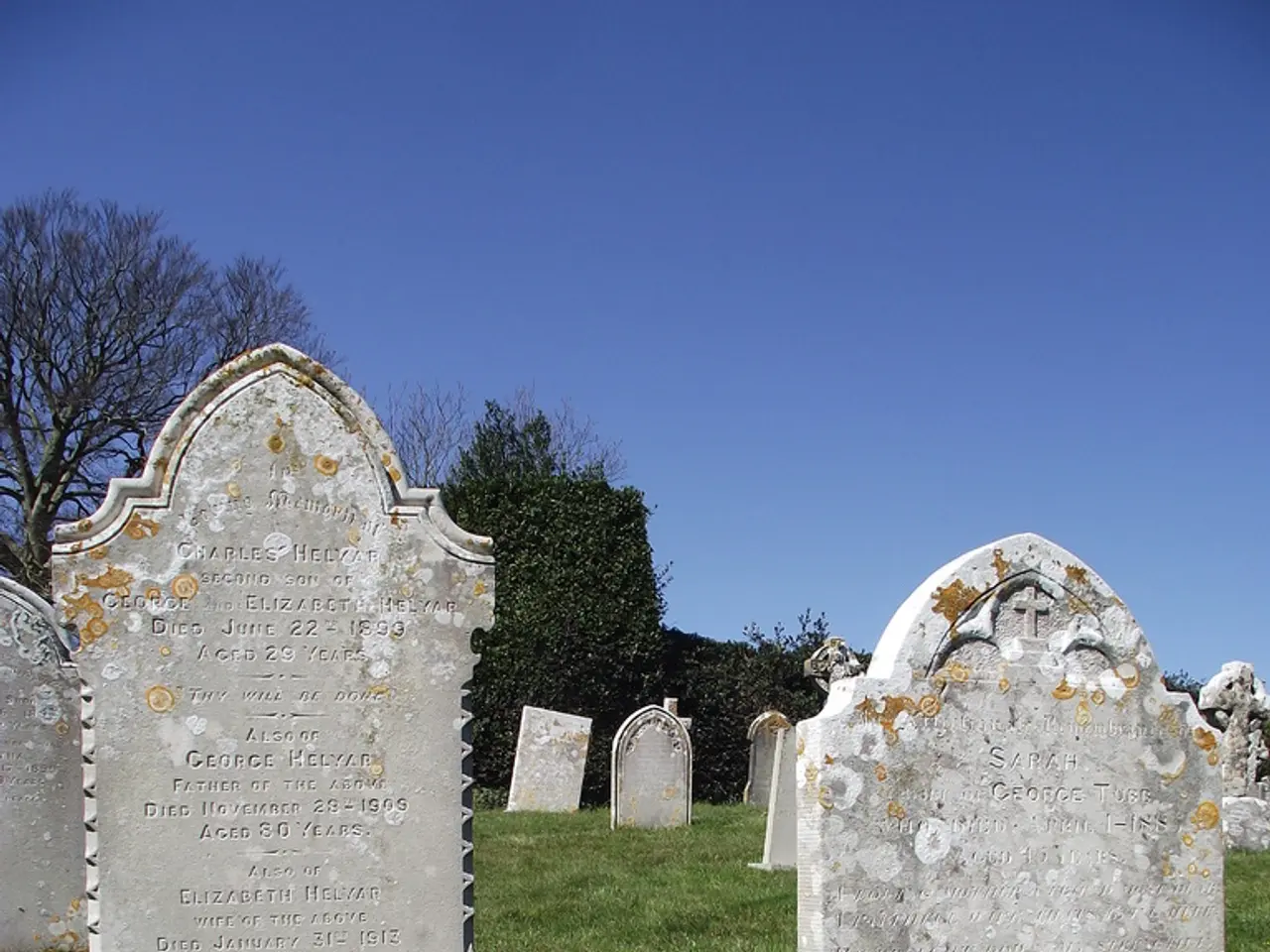Legendary Actress Elizabeth Taylor: Final Divine Icon - Iconic Actress Elizabeth Taylor, Final Epoch's Divine Female Figure
In 1992, the world of music and entertainment gathered at London's Wembley Stadium for the Freddie Mercury Tribute Concert, a poignant event held in memory of the late Queen frontman, who had passed away from AIDS-related complications. Among the star-studded lineup was legendary actress Elizabeth Taylor, who delivered a powerful and impactful speech on the fight against AIDS.
By 1992, AIDS was still heavily stigmatized, with widespread misinformation and fear surrounding the disease. Public figures speaking openly about AIDS were rare, and advocacy was urgently needed to combat prejudice and promote understanding. Elizabeth Taylor, a renowned actress and one of the earliest celebrity activists for AIDS, was deeply involved in raising awareness and funds. She co-founded the American Foundation for AIDS Research (amfAR) and used her platform to confront discrimination against people living with HIV/AIDS.
At the Freddie Mercury Tribute Concert, Taylor delivered a speech that advocated for compassion, understanding, and action in the fight against AIDS. Her presence and words helped "shut down hate" and brought critical attention to the epidemic. Taylor's speech is remembered as a defining moment of the concert, resonating strongly both with the audience and the wider public. It helped break through the silence and fear surrounding AIDS at that time.
The event, including Taylor’s speech and performances by artists like Elton John – another key AIDS activist who had founded the Elton John AIDS Foundation in 1992 – raised millions for AIDS research and helped humanize the epidemic for many people worldwide. By publicly linking Freddie Mercury’s death to AIDS and urging support and empathy, Taylor’s speech contributed significantly to changing perceptions, reducing stigma, and encouraging more open dialogue about HIV/AIDS.
Elizabeth Taylor's life was marked by pain, which led to years of excessive pill use and alcoholism. Born in England, she suffered from bone pain since she was 12, after falling off a horse. Despite her struggles, Taylor had the courage to speak her mind, perhaps due to early encounters with Hollywood's lies. For instance, her colleague Montgomery Clift, with whom she starred in "A Place in the Sun" in 1951, was not allowed to admit he was homosexual. Taylor encountered the lies of Hollywood early on, particularly in relation to her colleagues' sexuality.
During her speech at the Freddie Mercury Tribute Concert, Taylor encouraged the audience to protect themselves, as the number of new infections was expected to be high. She emphasized the use of condoms during sex and urged the public to take the AIDS crisis seriously. Taylor's courage to address such a sensitive topic openly was a testament to her dedication to the cause.
Taylor's life was not without personal triumphs. She fell for Richard Burton on the set of "Cleopatra" in 1963, and the two became a tumultuous couple, known for their public fights and multiple marriages. Taylor was most proud of her role in "Who's Afraid of Virginia Woolf?", as it portrayed marital warfare authentically.
Elizabeth Taylor passed away from heart failure in 2011, marking the end of the last goddess of Hollywood. Her speech at the Freddie Mercury Tribute Concert will always be remembered as a pivotal moment in the public fight against AIDS stigma and ignorance. Taylor's courage and compassion continue to inspire activism and donations toward research and support for those affected by HIV/AIDS.
[1] "Elizabeth Taylor's Speech at the Freddie Mercury Tribute Concert," AIDS.gov, 2021. [Online]. Available: https://www.aids.gov/blog/elizabeth-taylors-speech-at-the-freddie-mercury-tribute-concert/ [2] "Elizabeth Taylor: AIDS activist," BBC News, 2011. [Online]. Available: https://www.bbc.co.uk/news/entertainment-arts-14042691 [4] "Freddie Mercury Tribute Concert," Rock's Backpages, 1992. [Online]. Available: https://www.rocksbackpages.com/library/issue/139/page/4058
- I'm not going to be able to do this: Taylor's speech at the Freddie Mercury Tribute Concert, despite her personal struggles, was a testament to her dedication to the fight against AIDS stigma and ignorance.
- science: Research and support for those affected by HIV/AIDS continues to be inspired by Elizabeth Taylor's courage and compassion, demonstrated particularly in her advocacy for condom use and AIDS awareness during her speech at the concert.
- mental-health: Taylor's life was marked by physical pain and personal battles, including excessive pill use and alcoholism, yet she had the courage to speak her mind, perhaps due to early encounters with Hollywood's lies and the silencing of her colleagues' personal lives.




